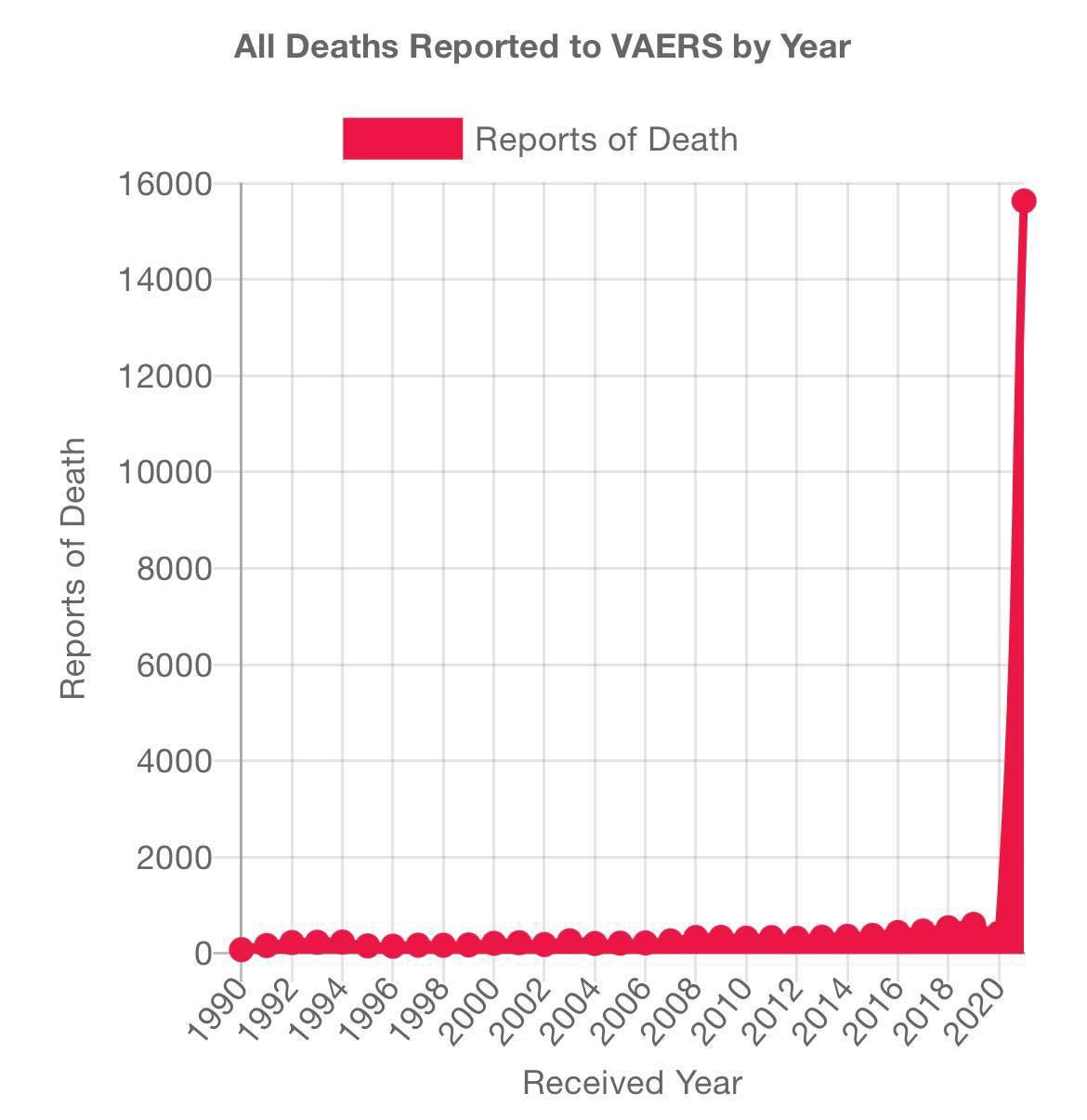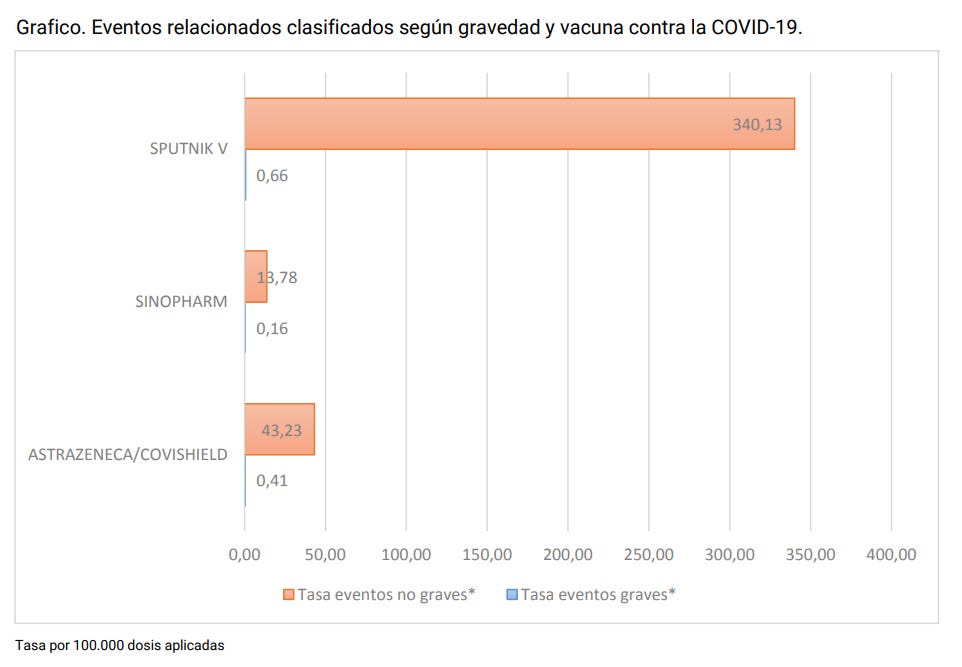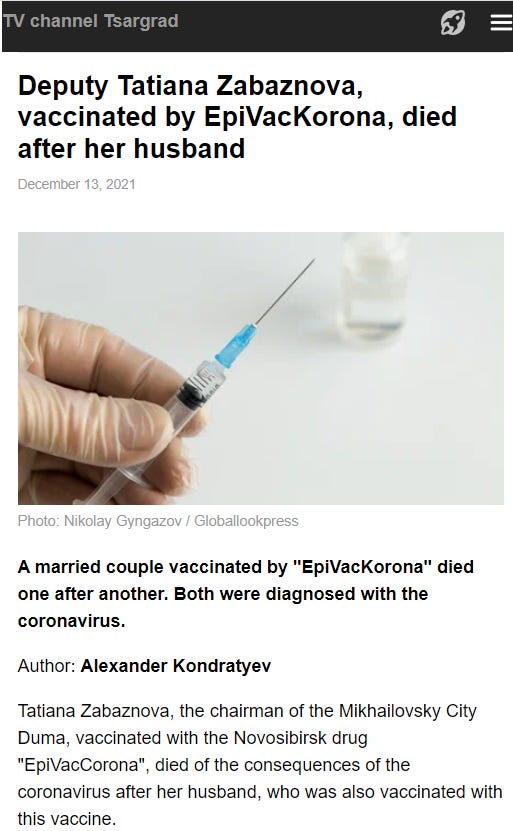Vaccine safety in Russia: No VAERS. No transparency. Only threats.
Russia says its vaccines are safe. Where is the evidence?

There are no publicly available statistics on post-vaccination complications in Russia.
Do you have a problem with that? Then RT considers you an “enemy of the people.”
Maybe instead of using Purge slogans to “persuade” people to get the shot, the Russian government could… be transparent?
Krasnaya Vesna just published a very good article in which they observed: “If our vaccine is safe, then objective evidence of this must be presented—and then everyone will be delighted and sigh with relief.”
Evidence—what a radical concept. Below are excerpts from Vesna’s excellent and thought-provoking analysis.
What should be done to convince a person of the correctness of this or that decision concerning his health? For example, whether to vaccinate him against this or that actual disease, or not. Call him stupid brute? Putting pressure on emotions and fear of death? Perhaps the organizers of the information campaign to support the mass vaccination against coronavirus in Russia will be surprised, but no. To persuade a person to consent to a medical procedure, they must understand that the benefits of the procedure far outweigh all the risks associated with it.
[…]
As you know, the Gamaleya Institute’s Sputnik V is the most common COVID-19 vaccine used in Russia. The vaccine is also enjoying good export success, including to countries that publish data on adverse events after vaccination with more or less frequency and level of detail.
To understand how Sputnik V's safety profile compares with foreign COVID-19 vaccines, I reviewed the most recent reports from post-vaccination adverse event tracking systems from Argentina, Mexico, Paraguay and the Philippines, which purchased our vaccine along with others. On their basis, we can responsibly say only that “Sputnik V” in terms of the frequency of mild and severe (that is, requiring hospitalization) expected side effects is comparable to foreign counterparts. The frequency of these adverse events varies between the four countries, but Sputnik V is generally in the middle of the comparative safety rating, with the exception of Argentina, where Sputnik V has the highest frequency of adverse events of all vaccines used in the country, including those in which the expected side effects occurred more frequently in the other three countries.

The large degree of fluctuation in the data on the alleged side effects of Sputnik V in foreign countries may well be due to local specifics, and not to the vaccine itself. This underscores the importance of accessible, official, open statistics on the safety of Sputnik V in Russia. Are there such data?
Roszdravnadzor [Russia’s consumer protection agency] is responsible for monitoring the safety and effectiveness of medicinal products in Russia. It has a “Pharmacovigilance” system that collects spontaneous alerts of suspected side effects from healthcare professionals. But the data of “Pharmacovigilance” on the vaccines used in Russia against COVID-19 are not in the public domain. Now a Unified Information Database of the EAEU is being created, which in the future will be easy to use, but which today does not contain information on the issue of interest to us.
Here is one of two things. Either the “Pharmacovigilance” data on vaccines against COVID-19 are classified for one reason or another, but they exist somewhere. Or this data is not collected at all, and emptiness is hidden behind the silence. […]
If the task of the coronavirus vaccination policy in Russia is to ensure informed consent to vaccination of the maximum number of people, then the easiest way to do this is by telling people the truth. Then they, in consultation with a trusted doctor, can compare the risks and benefits associated with vaccination against a particular disease.
If our vaccines are safe, then objective evidence of this must be presented, and then everyone will be delighted and sigh with relief. […]
So who is hindered by publicly available “Pharmacovigilance” data on vaccination against COVID-19 in Russia? Someone who seeks to destroy any remnants of the people's trust in the authorities?
Tatiana Zabaznova, the chairman of the Mikhailovsky City Duma, vaccinated with the Novosibirsk drug “EpiVacCorona”, died of the consequences of the coronavirus after her husband, who was also vaccinated with this vaccine.
Family friends said that in the morning Zabaznova felt fine and was even transferred to the cardiology department—she had already been cured of the coronavirus. However, several hours later she died.
The Zabaznovs were vaccinated with the drug “EpiVacCorona”, but after vaccination they both turned out to be sick with COVID-19. Soon they were hospitalized in an infectious diseases hospital, and after a short period of time, the head of the family, Fyodor Zabaznov, died.
When will it stop?





Hey Riley, you might want to check this out:
https://celiafarber.substack.com/p/uk-scientist-reveals-bombshell-data
"There are huge number of reports in VAERS. What he has done is that …the guy must have a lot of time on his hands because VAERS is a pain in the ass to use normally. There’s almost a million reports now on the Covid injections….from this guy I learned there are 20,200 batches. That includes all 3— Pfizer, Moderna, and Janssen. He has done an analysis by batch number.....These companies are working in concert so they did not interfere with each other’s results. The toxicities are very specific, and they come sequentially."
It seems the saline theory is probably correct, and even more complex than we first imagined.
"Russia says its vaccines are safe. Where is the evidence?" There! They say so....